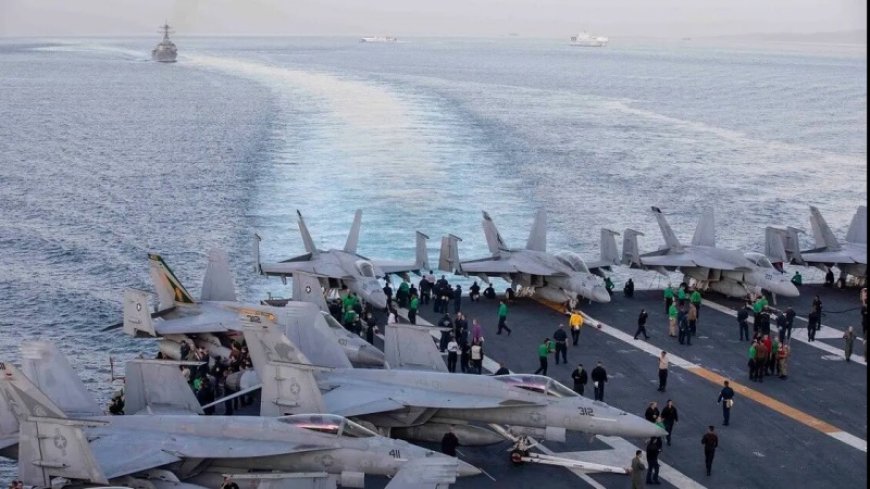Disagreement in Europe over US and UK attack on Yemen
Italy, Spain and France, although they did not support the US and British attacks on the Yemeni army, did not sign the statement that was published by 10 countries justifying the attacks.

Following US and British attacks on Yemen on Friday morning, US Central Command (CENTCOM) announced a new attack on a radar station in Sanaa, Reuters reported. Although US officials said the Netherlands, Australia, Canada and Bahrain provided intelligence and logistical support for the attack, and Germany, Denmark, New Zealand and South Korea signed a joint statement justifying the two countries' strikes on Yemen, a source in the office of Giorgi Meloni, the prime minister Italy, said that the country refused to sign this statement for two reasons. Firstly, the Italian government needs parliamentary approval for any participation, a labor-intensive process, and secondly, Rome prefers to follow a “peaceful policy” in the Red Sea. On the other hand, according to political analysts, Paris fears that by joining the US-led attacks, it will lose any leverage it had in negotiations to reduce tensions between Hezbollah and the Zionist regime in Lebanon. In recent weeks, France has focused much of its diplomacy on "avoiding escalation in Lebanon." Spanish Defense Minister Margarita Robles did not participate in these military actions in the Red Sea because she wants to bring peace to the region. In this regard, she stated: “Every country must explain its actions. Spain will always be committed to peace and dialogue."
Al-Mayadeen TV reported that more than 12 sites used by Ansarullah forces in Yemen's northern Saada province and western Yemen's Hodeidah province were the target of air and sea attacks from the US and England on Friday morning, and according to announced reports. American and British fighters continue to fly in the skies of Saada and Hodeidah provinces. US President Joe Biden said in a statement: "We, with the cooperation of England and the support of Australia, Bahrain, Canada and the Netherlands, conducted successful attacks against a number of targets in Yemen." In turn, English Prime Minister Rishi Sunak noted in a statement justifying military aggression against Yemen: “The Royal Air Force carried out targeted strikes on Yemeni military targets. These attacks were necessary, limited and proportionate to self-defense." Tomahawk missiles were fired from air, ground and underground platforms at a variety of targets, including radar systems, gun emplacements, drone storage and launch sites, and ballistic and cruise missile storage facilities in Yemen, CNN reported. The First Deputy Governor of Sana'a, pointing to the aggressive strikes of the United States and England, said that these attacks did not lead to loss of life. In his first reaction to the bombing of targets in Yemen by the American-British coalition, one of the senior members of the Yemeni Ansarullah, Ali Al-Kahum, noted: “There will be a fierce war in the Red Sea, attacks on American and British military bases, as well as more active actions against the aggressors.” . “We will respond powerfully to the American and British ships in the Red Sea,” he added. In turn, Hussein al-Azzi, deputy foreign minister of the Sanaa government, said in response to the bombing of Yemen: “There is no doubt that London and Washington must be prepared to pay a heavy price for these actions and aggression.”
Additionally, Mohammad Al-Bahiti, a member of Ansarullah's politburo, said in response to the bombing of Yemen that America and Britain made mistakes in the war on Yemen and did not learn from their previous failures. America and England will soon realize that direct aggression against Yemen was the biggest stupidity in their history. The attacks by the USA and England caused a reaction from some countries of the world. In particular, Russia, in response to joint air strikes by the United States and England on Yemen, called for an immediate emergency meeting. Also, the Ministry of Foreign Affairs of Saudi Arabia, in response to these attacks, stated that Riyadh is following this military operation with concern. The Saudi Foreign Ministry also called for maintaining security and stability in the Red Sea and for exercising restraint and avoiding rising tensions. In turn, the Iraqi Islamic Resistance Movement Al-Nujaba announced that the forces of the Al-Nujaba movement attacked the Israeli regime's security command center near the Jordan River in the occupied Golan in response to US and British attacks on Yemen. Recently, the United States announced the creation of a naval coalition, including 20 countries, to counter the operations of the Yemeni army in the Red Sea. However, soon countries such as France, Spain, Italy and Australia withdrew from the coalition and refused to hand over their warships to the American command. The US naval alliance has also faced a cold response from regional countries such as Saudi Arabia and the United Arab Emirates, and recently Egypt also refused to join the alliance. Yemeni army attacks in the Red Sea began on November 19, and Yemen's Ansarullah movement has stated that these attacks will continue until Israeli attacks in the Gaza Strip cease. Almost 15% of global maritime trade, including 8% of wheat trade, 12% of oil trade and 8% of liquefied natural gas trade, occurs through the Red Sea, making the sea fundamental to the transport of goods between Asia and Europe.













































